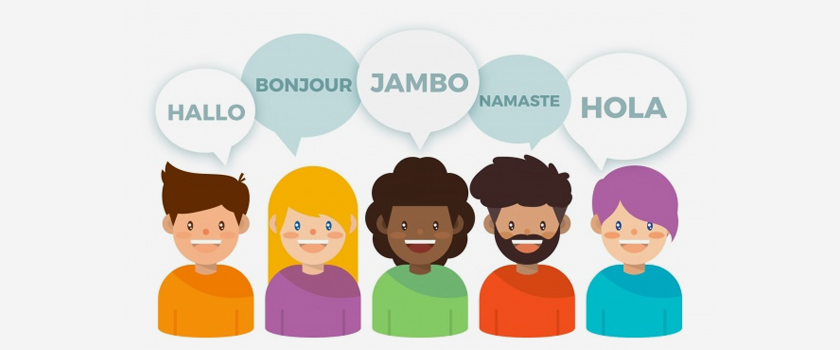Significance of Translation and Interpretation
By: Eric Nelson Posted on Mon, 29-06-2020

Clinical and medical trials are a vital part of the vast medical field that is expanding each day, thanks to new researches in this branch of sciences. With the advancement in technology and researches related to the medical field comes the need to expand beyond current markets and make these researches accessible globally.
Clinical trials nowadays are governed largely by strict regulatory practices and guidelines. The vital role that these clinical trials play in the area of medical and pharmaceutical researches can be gauged by the fact that regulatory guidelines have been established globally to make these clinical trials available to the medical community throughout the world. However, to make this accessibility possible, proper, and accurate translation of these clinical trials is a must, as it could open new doors for medical advancements and use globally.
The increased use of technology and the present circumstances of lockdowns owing to the spread of COVID-19 have resulted in the virtual conducting of these trials. Nevertheless, it is compulsory for every new drug to undergo proper clinical trial and evaluation as a failure to do so could have serious health repercussions.
What is a Virtual Clinical Trial?
Virtual clinical trials are the trials that are conducted remotely and incorporate digital health technology. While most of these clinical trials are carried out to test the effectiveness of new drug, treatment, surgical practice or medical device, the “decentralized” nature of virtual clinical trials presents some challenges that must be addressed. They must take into account the regulatory environments of other countries along with a proper translation of all relevant study material such as investigator brochures, Clinical Trial Agreements (CTAs), Informed Consent Forms (ICFs), and Patient-Reported Outcomes (PROs).
The Role of Translation in Virtual Clinical Trials
Some clinical trials take place in the country of their origin, but others have to go through a rigorous process of translation. As these clinical trials become an increasingly global affair, the trend of delocalizing clinical trials has gathered momentum. This is the reason both localization and translation services are necessary for accurate representation outside the country of origin. As a means to accurately interpret PROs as well as to establish clinical trial protocols, pharmacists and doctors need translated and localized clinical trials that would deliver the intended outcomes easily.
It must be noted that the failure to deliver translated clinical trials can have detrimental impacts on the stakeholders. An inaccurate translation can lead to lost credibility of medical translators and the study, economic losses and even devastating health impacts on the patients. A faulty translation may be a precursor of the failure of the participant to act as instructed, reduced effect of treatment, as well as disparities in prescription and administration of the trial.
Considering the importance of translation for clinical trials, it must be noted that it is a vital component of the whole process as it is involved in many stages—from research and regulatory submission to production and marketing. Improving the quality of translated clinical trials is, therefore, the need of the hour.
Benefits of Translated Clinical Trials
Translated and localized clinical trials have a host of benefits to offer. These are:
Builds on the existing research work
A great amount of medical research is done as well as recorded in English as it is a universally spoken and understood language. Other than English, these researches are also done in global languages such as Chinese, Russian, French, and Spanish.
To make sure all countries and their medical practitioners and pharmacists benefit from the clinical trials, translated and localized content is a must. Only by making studies intelligible in other languages can their expansion be ensured. A translated and localized clinical trial can enable researchers from different countries to build on each other’s research work, aiding in better and improved as well as result-oriented clinical trials.
Fills the requirement of Governing Bodies
The medical research field has numerous governing and regulatory bodies, each one responsible for the regulation and inspection of medical-related activities and researches. As part of making the clinical trials available in every country, these regulatory bodies require translated and localized content in other languages. Some groups such as European Medical Agency (EMA), the Food and Drug Administration (FDA), and World Health Organization (WHO) undertake a strict inspection of the translated clinical trials before making them available in other countries. Thus, a translated clinical trial fills the need of these governing bodies for making these studies globally available.
Ensures Understanding of Trial Participants
In the process of ensuring participants are fully involved in the process of clinical trials, a clinical trial protocol (CTP) is designed in a way so as to ensure their full understanding. A CTP is a document in which the trial’s goals, design, methods and organization are detailed. A properly translated CTP ensures proper communication between the participants as well as success in the outcomes of the trial. A CTP needs to be properly translated to ensure all its guidelines clearly state the purpose and intentions of the trial, which is why an accurate translation will pave the way for successful clinical trials.
Things to Keep in Mind when Translating VCT
The translation and localization of clinical trials is a complex endeavor undertaken by expert and professional medical translators with proven experiences. There are a few things that must be kept in mind when undertaking the task of translating VCT.
Have a strategy
Medical translation services involve a careful and precise approach in order to professionally translate all material. This is why it is important to have a pre-planned strategy when translating VCTs as even a minor error can result in discrepancies in the results of the trials, ultimately leading to errors in the administration of the medicines. Tackling the translation at the very last moment will result in errors which is why it is important to work with your language translation company from the very beginning till the end, without the need to hurry or speed up the trial.
Choose the right translation partner
This is the most important step in the translation process as the right choice for a translation partner can make the whole process easy and simple to handle. The language translation company you choose should have expert medical interpreters and translators who have proven experience in handling medical translations. Not only that, they should also have a specialism in translating clinical trials as that would make the whole process an easy and error-free one.
Have a holistic approach
When tackling the task of getting your VCTs translated, it is important to have a complete and holistic approach. Ensure this holistic approach by making sure that your chosen translation partner can handle all aspects of the trial. Including Clinical Trial Protocols (CTPs), questionnaires, Patient Quality of Life Questionnaires, and other submissions.
The Last Word
Virtual Clinical Trials are a different form of clinical trials as we know it. In this age of advancing technology as well as in the present crisis of COVID-19, there is a dire need to get these VCTs translated in order to ensure all clinical trials are successfully implemented and carried out, both in the countries of their origin and other countries as well. Choosing the right translation partner is the key to ensuring these VCTs are properly and accurately translated for error-free and successful clinical studies for the betterment of humanity.

Africa is the second largest and second most populous continent. As recent statistics suggest, 1,486,275,887 is the current population of
Read more
No state on the western side of the globe can compare the strategic geographic location, diverse multilingual workforce, and attention
Read more
San Diego is California's second-largest city, and it has a population of 1.3 million from which three million residents are
Read more
Dallas is the largest state in Texas after Houston and San Antonio. It is the ninth most populous city in
Read more
In this day and age, users love to consume video content. Statistics show that almost 90% of all internet users
Read more
Virtual reality is transforming our imaginative worlds into existence. Since childhood, we used to create visionary kingdoms and act like
Read more
Switzerland is a landlocked country with a very interesting history. The culture and languages spoken in Switzerland are highly influenced
Read more
Digitalization has played a great role in this global world. People seek the internet to find the solution to everything.
Read more
Creating massive amounts of content, buying ads, and keeping the social media game up is what most businesses would do
Read more